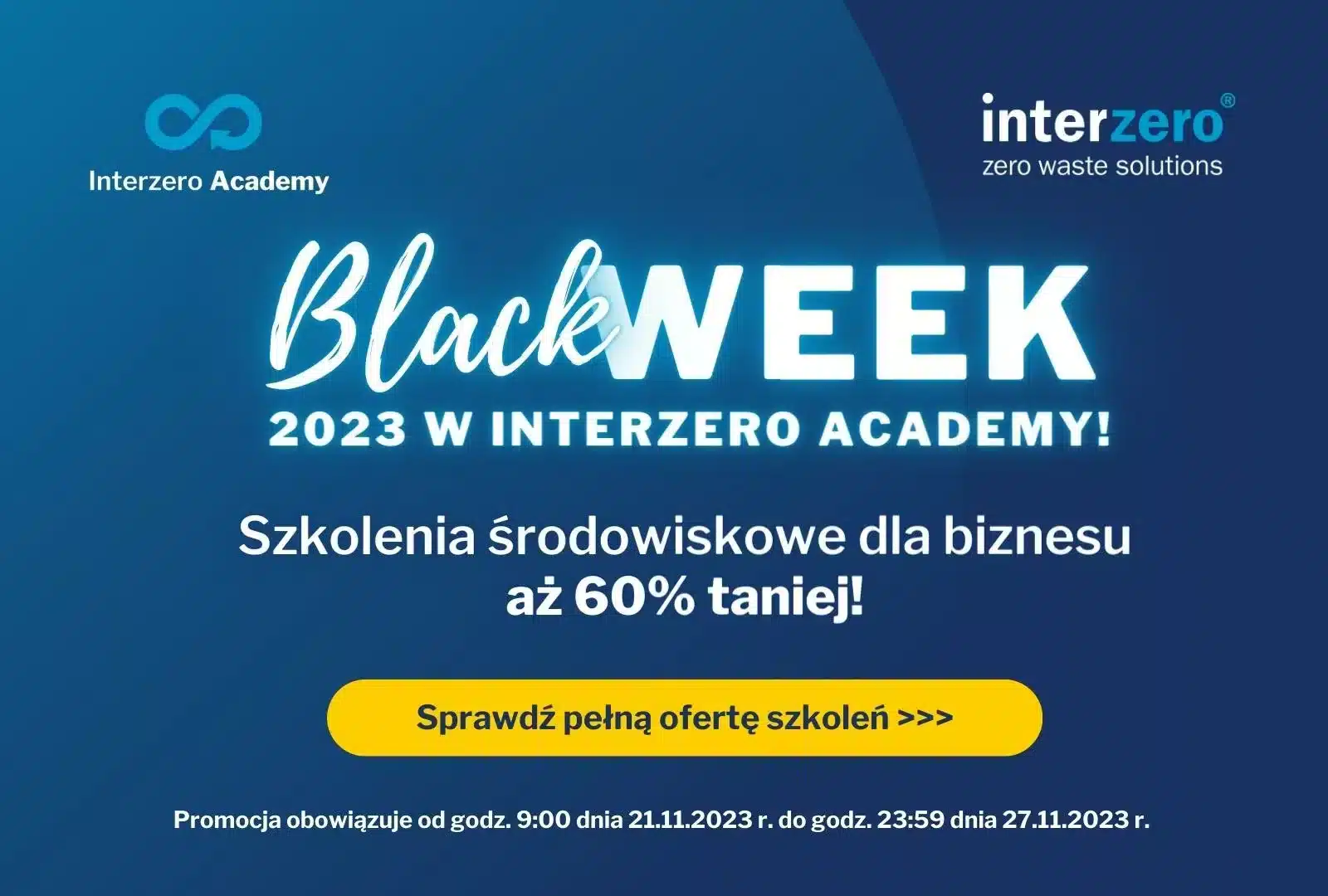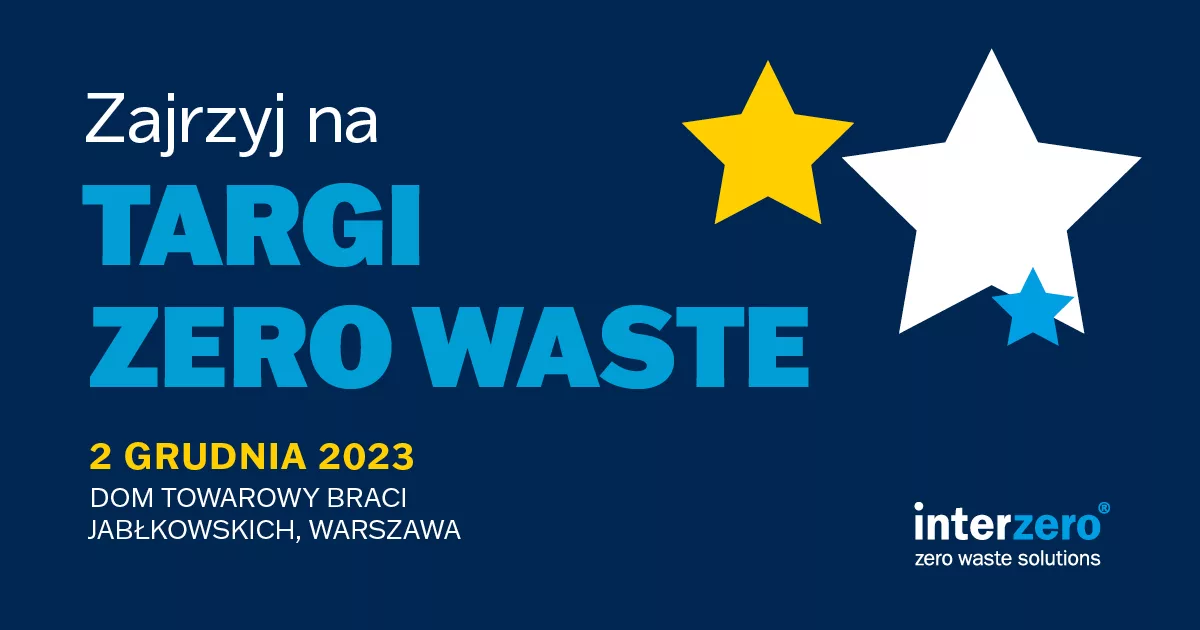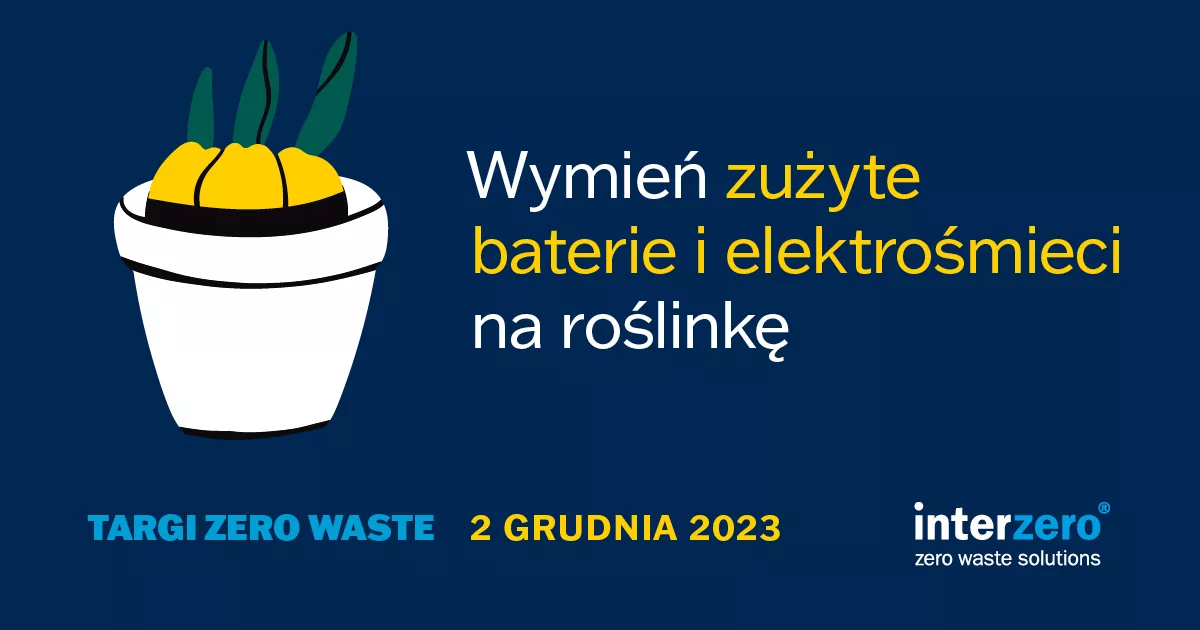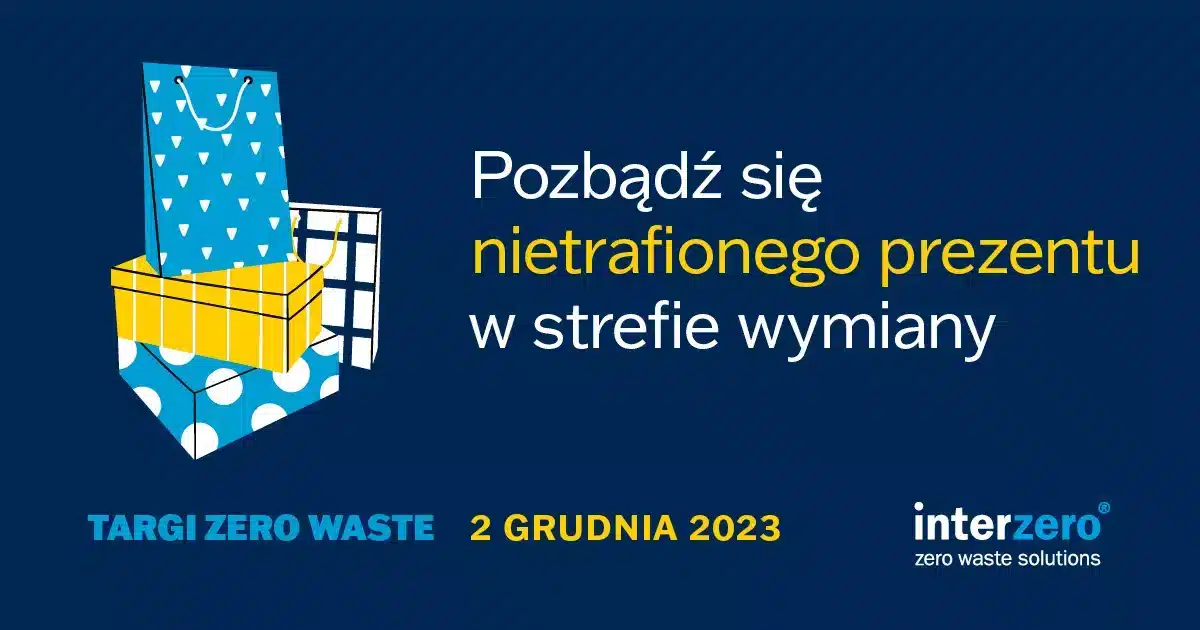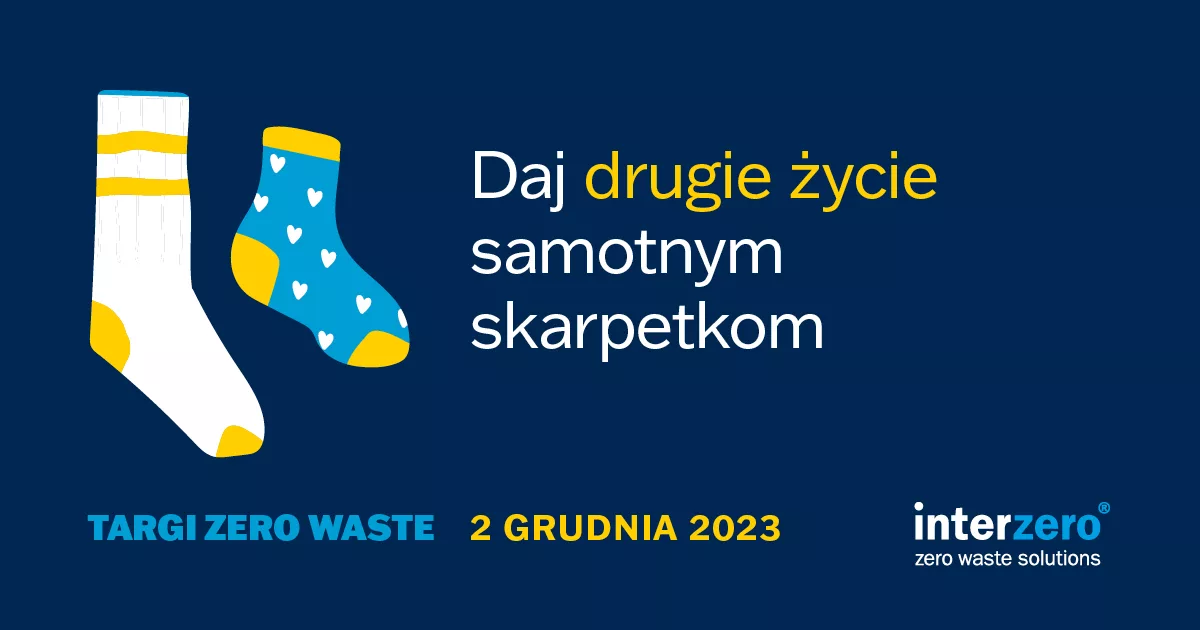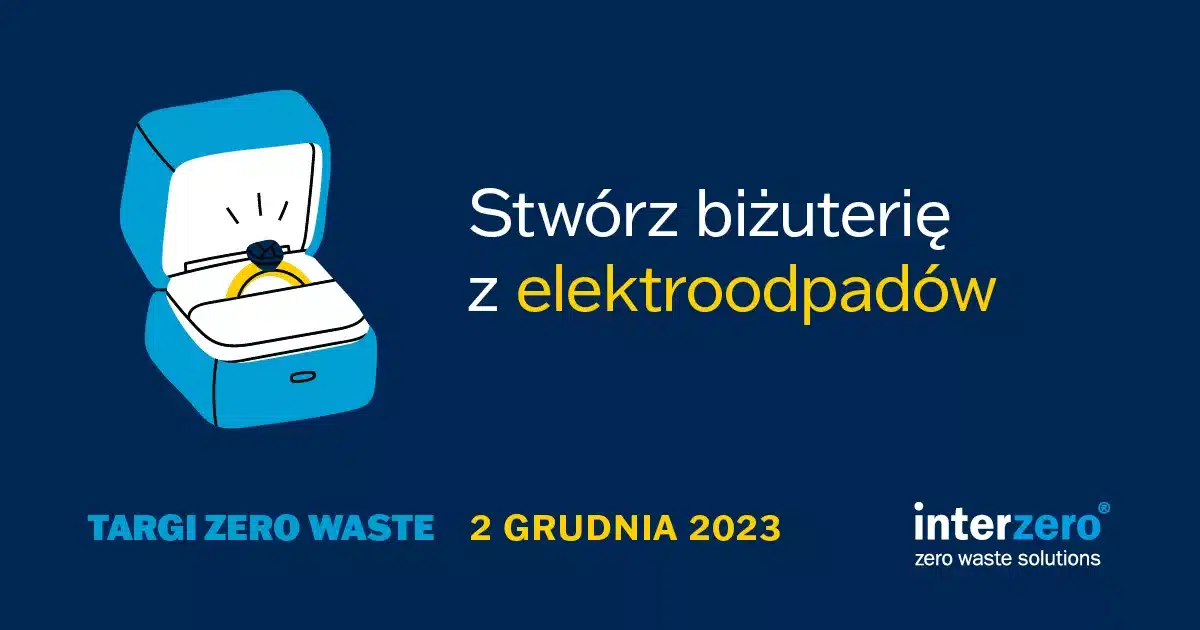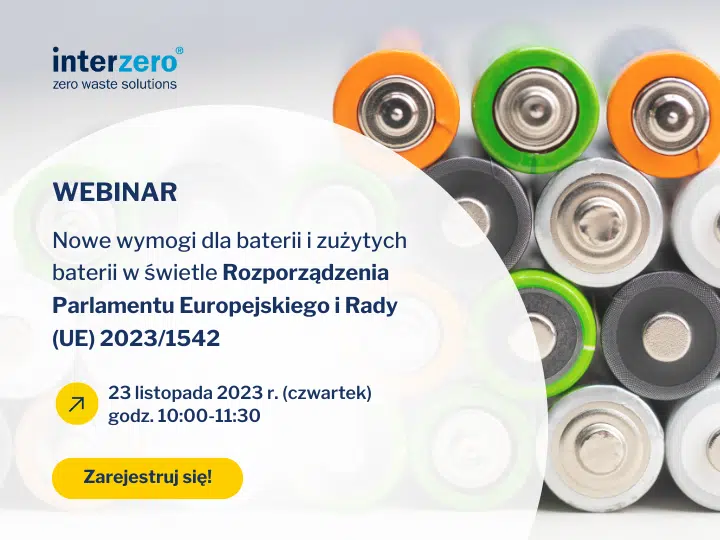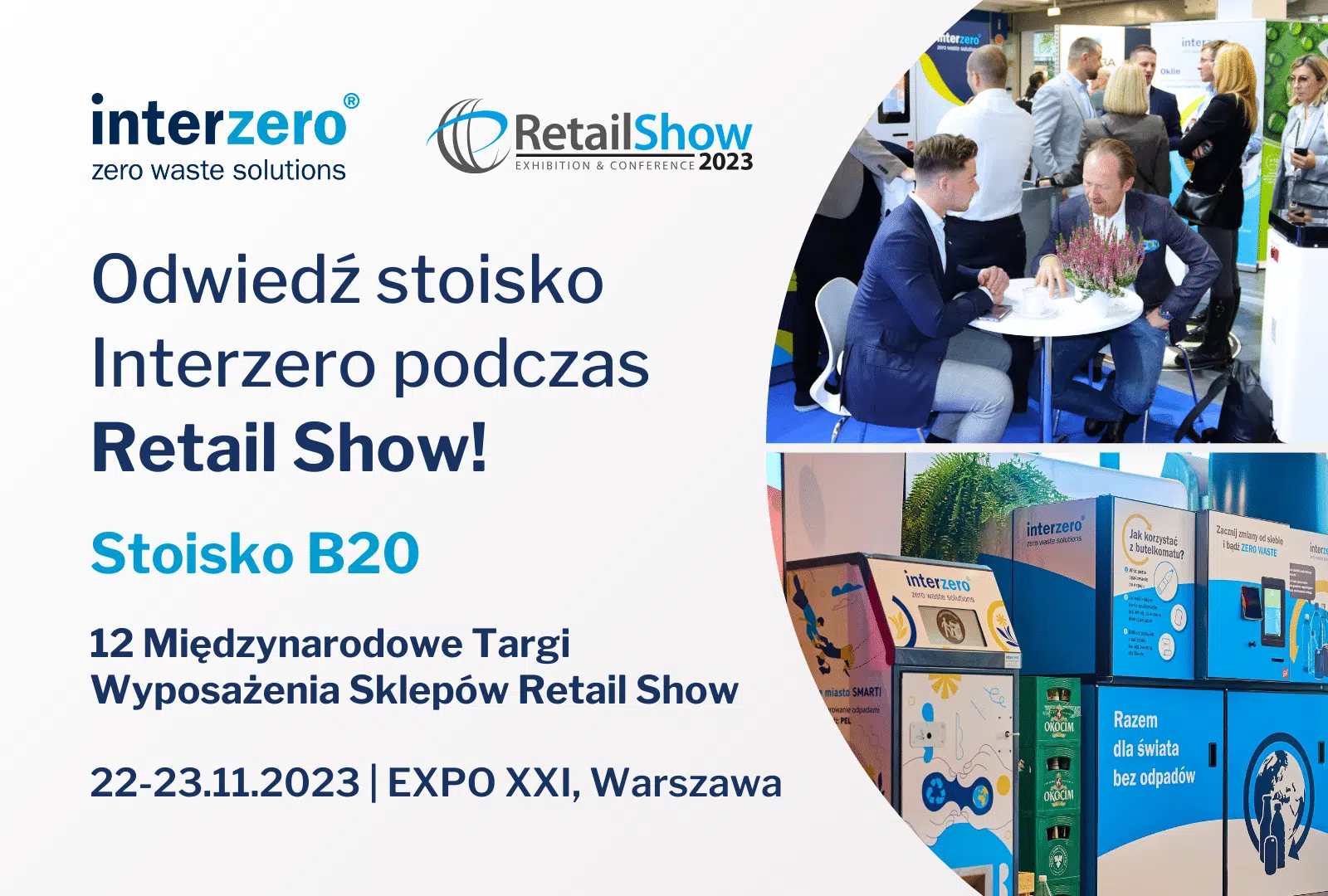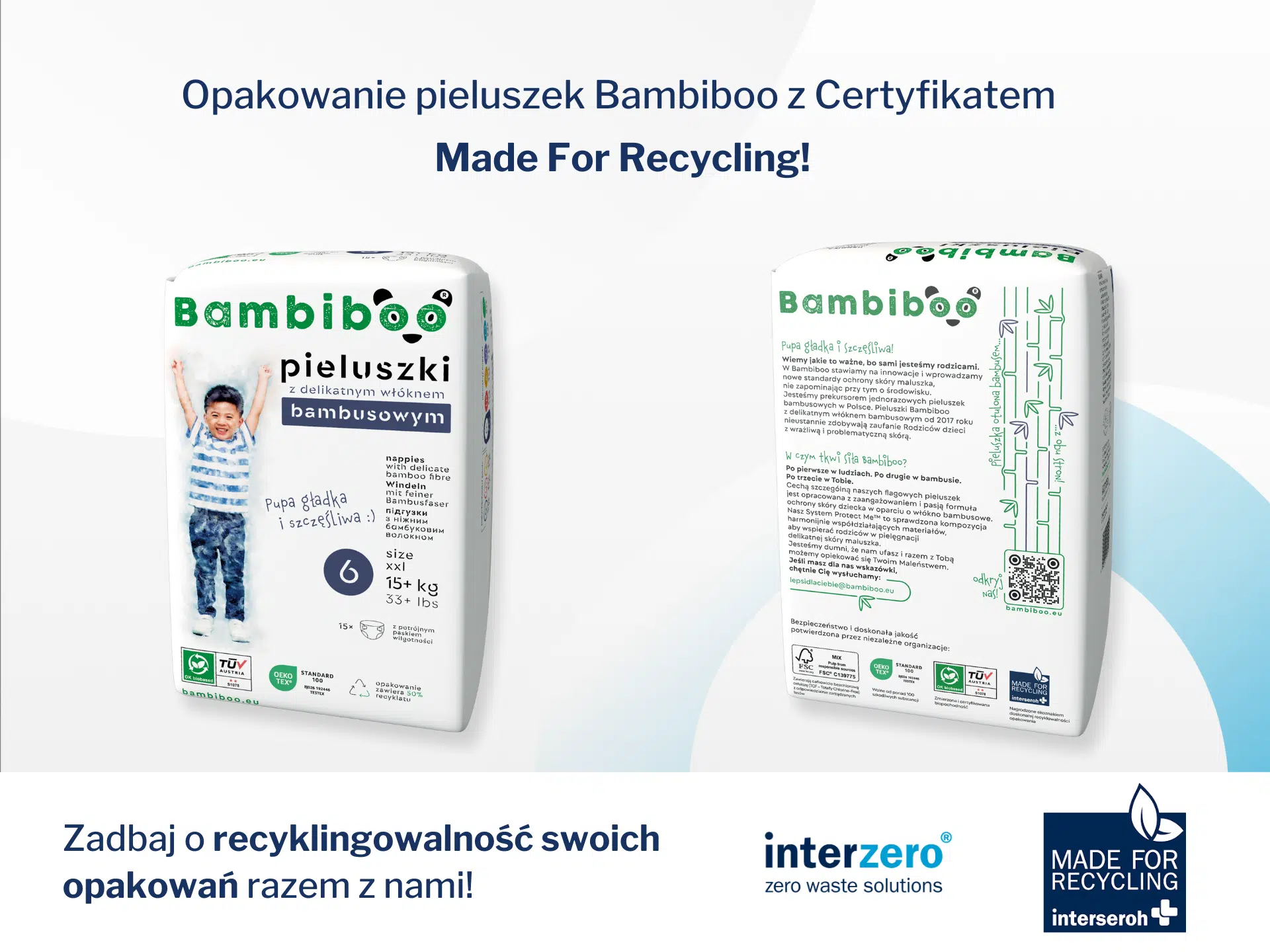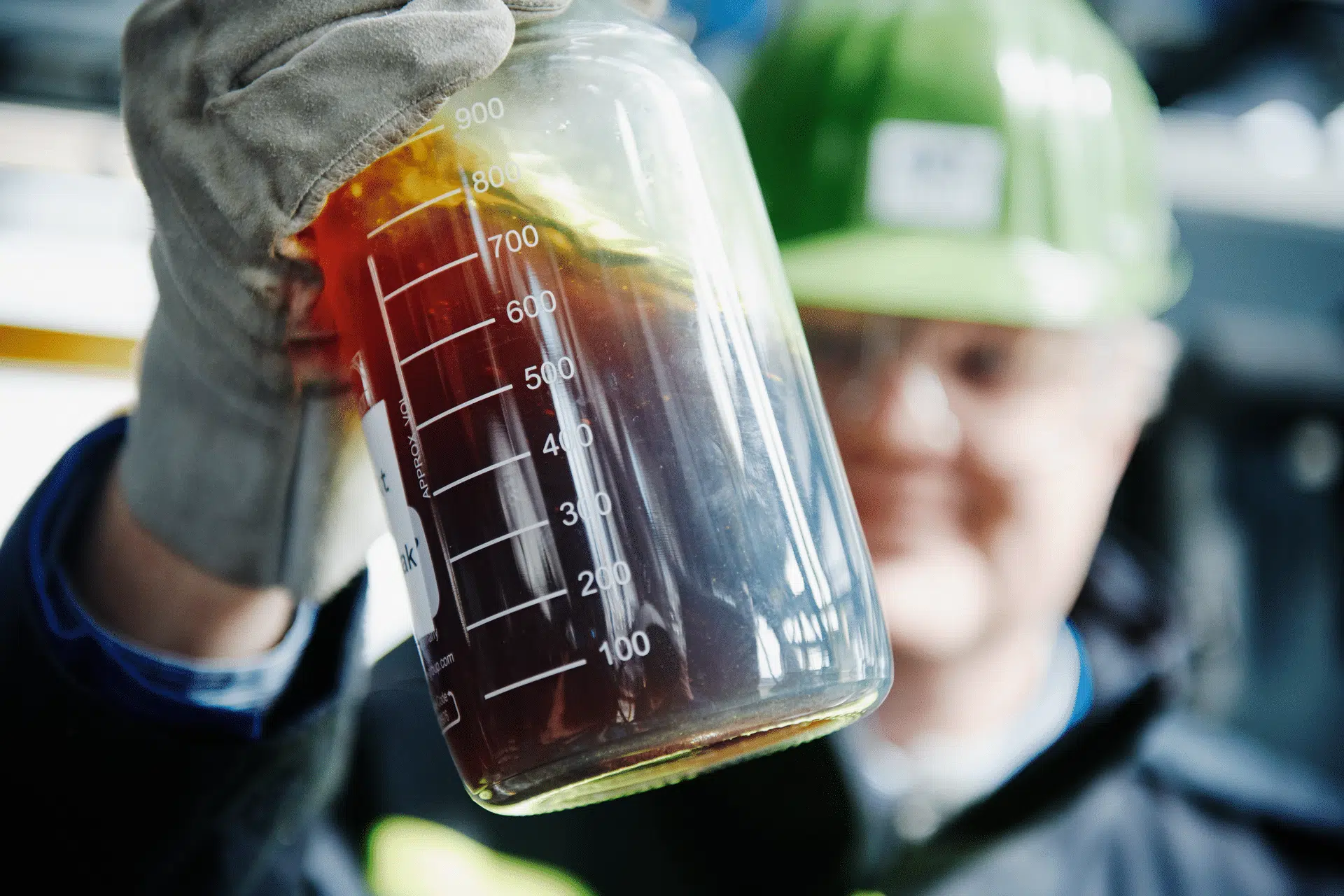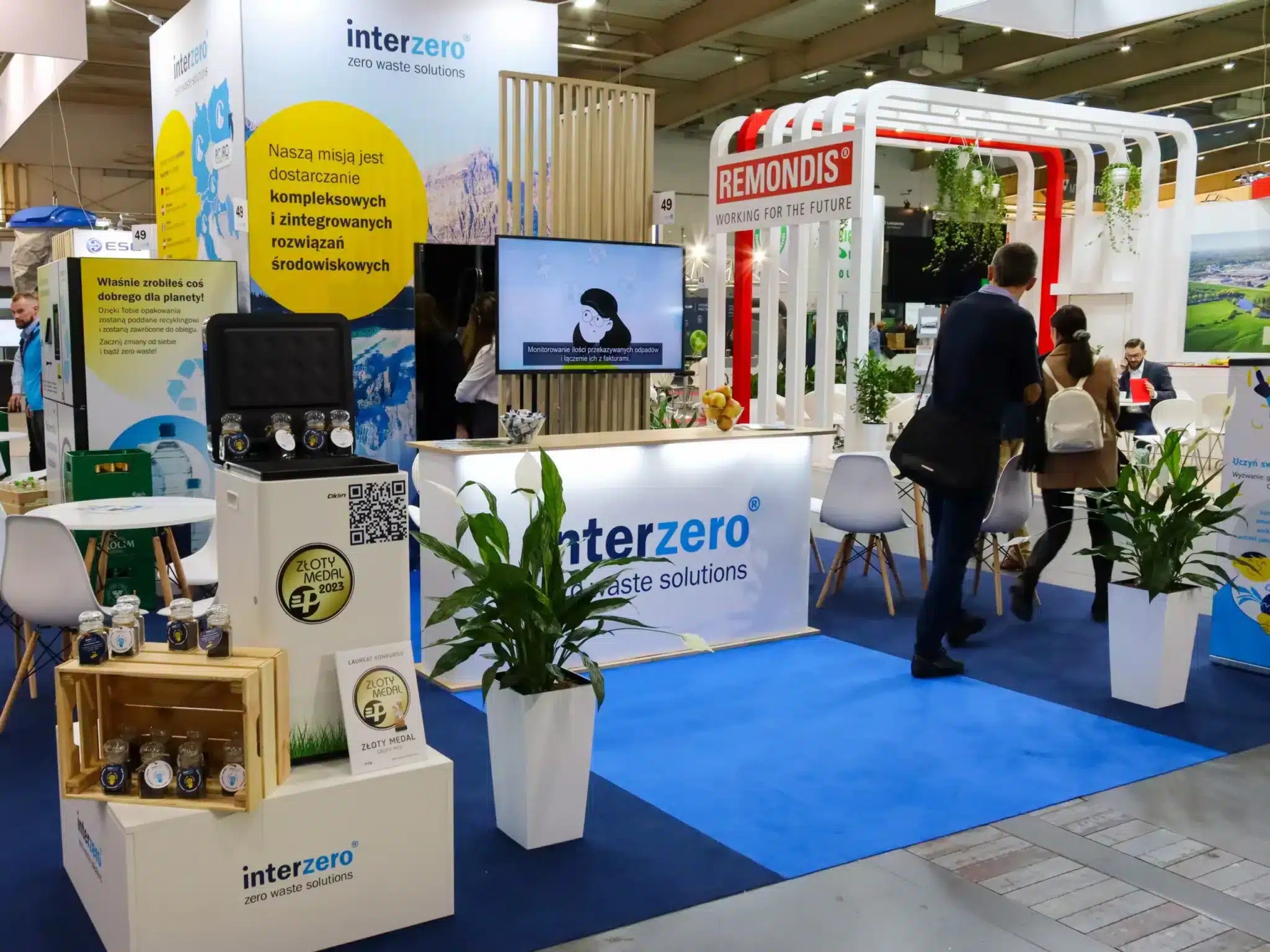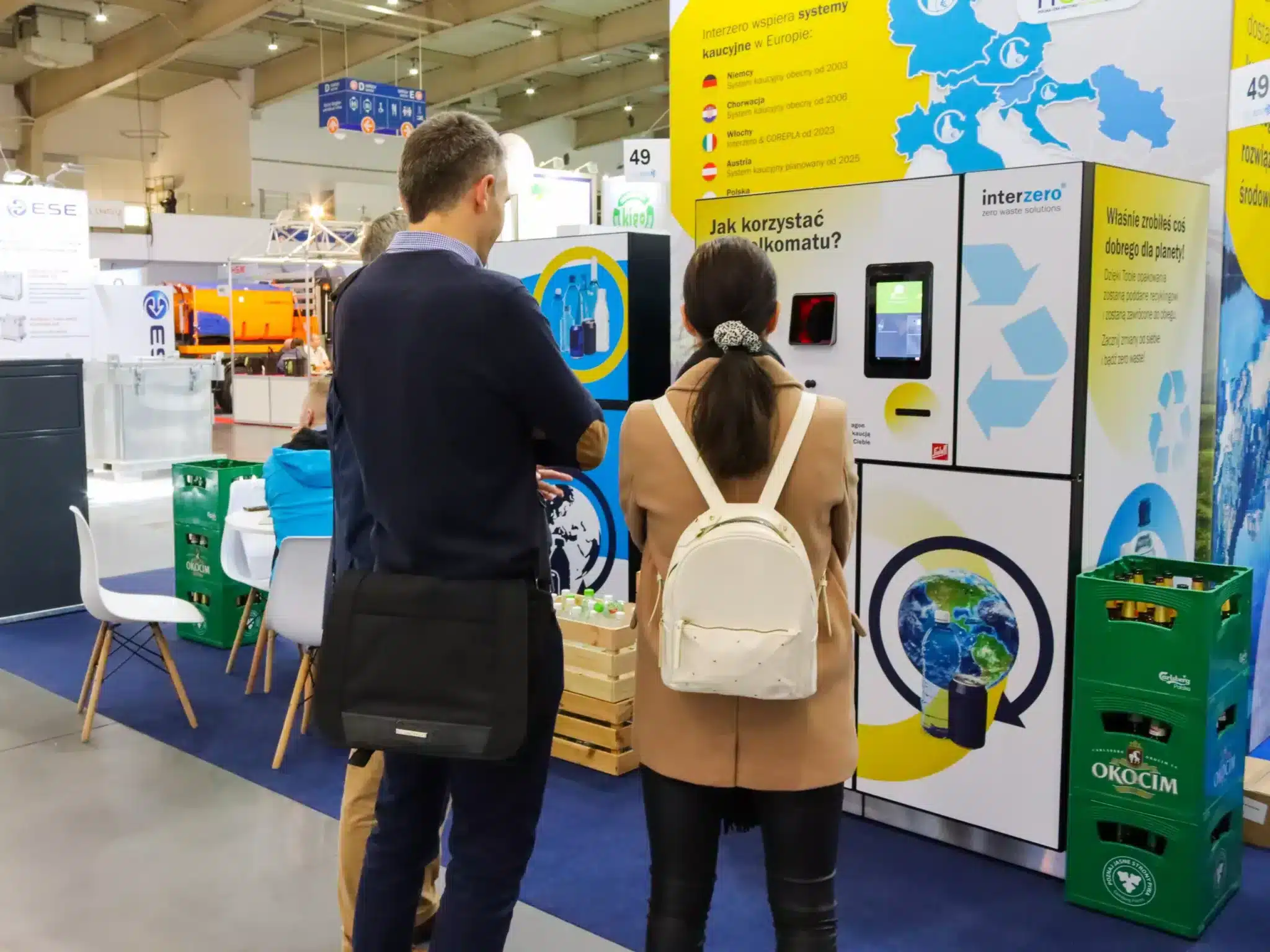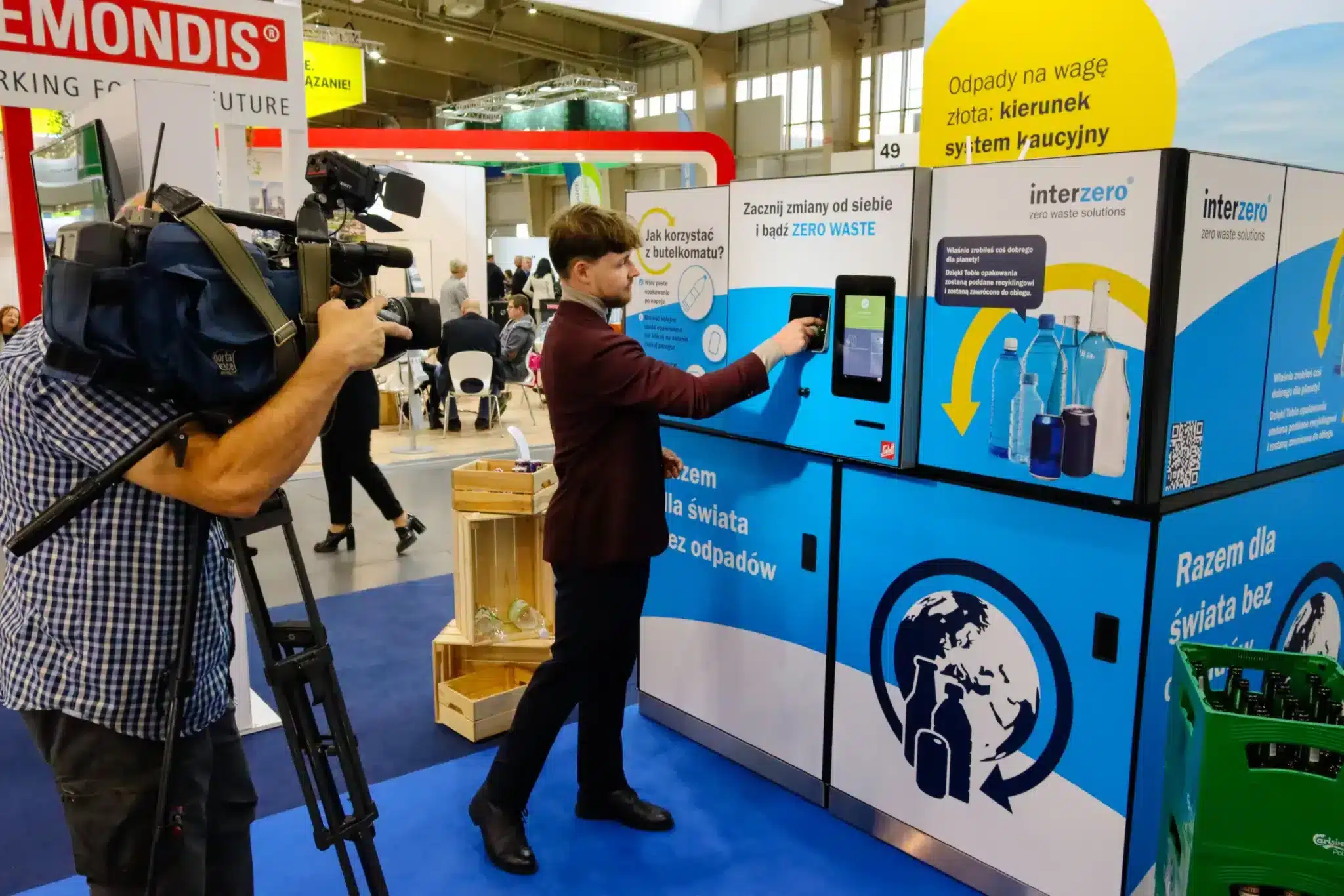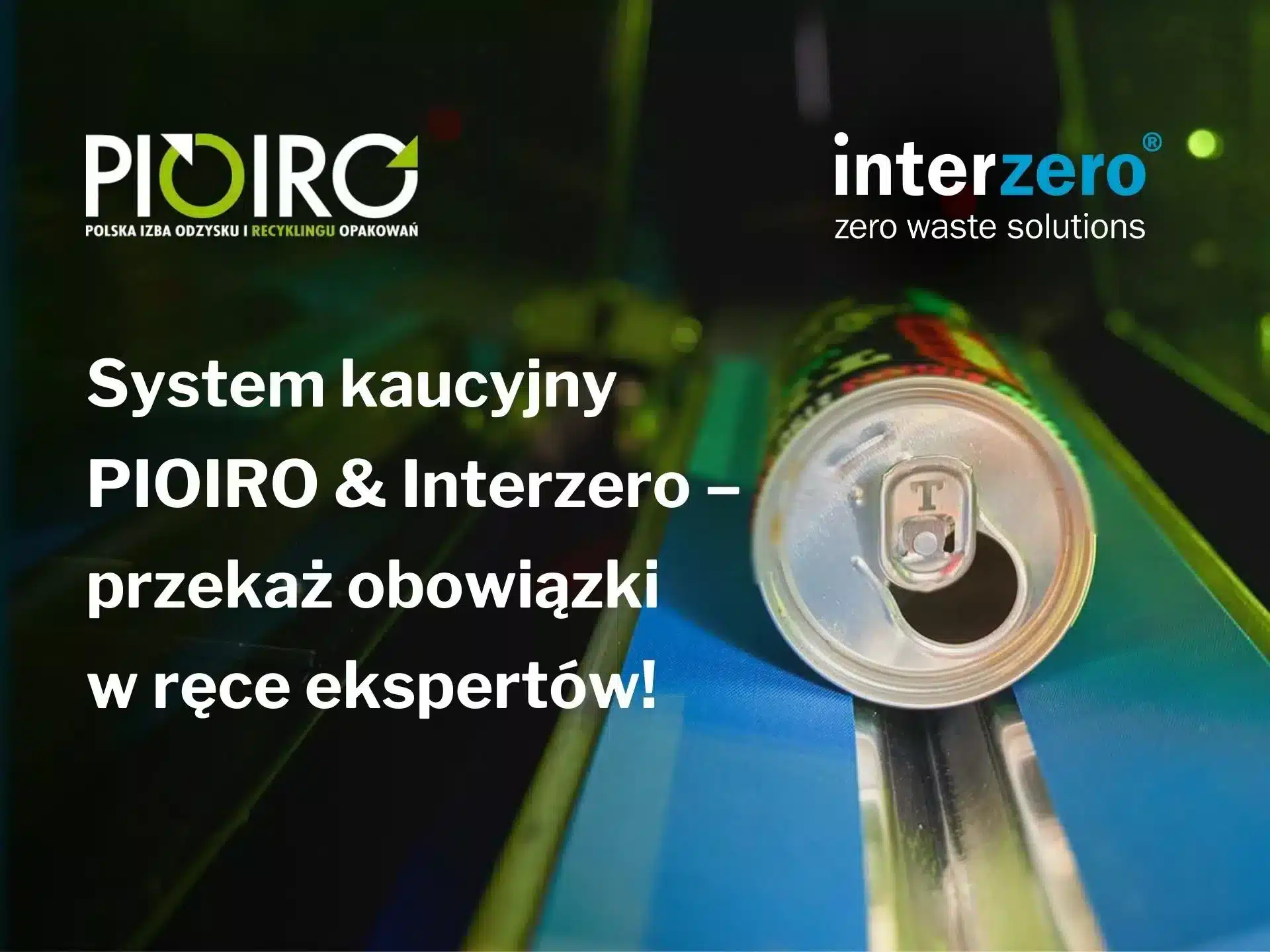Black Week 2023 | Save 60% on environmental protection training at Interzero Academy!
Black Week 2023 | Save 60% on environmental protection training at Interzero Academy!
On the occasion of the upcoming Black Week, we have prepared an extraordinary promotion for Interzero Academy – as much as -60% on all environmental protection training!
Waste management, BDO, extended producer responsibility, air emissions, deposit system, SUP, PPWR, water and sewage management - these are issues that you can delve deeper into on our Interzero Academy educational platform. Additionally, now at a favorable price.
Why is it worth taking our courses?
Expertise: Our courses are created by experienced experts in the field of environmental protection. You will receive the most up-to-date and reliable knowledge.
Accessibility: Courses are available online, which means you can study from anywhere, anytime. So it's flexibility to suit your lifestyle!
Thematic diversity: Whether you are simply interested in ecological business practices or specific information resulting from the latest legal regulations regarding environmental protection, we have a course for you.
How to take advantage of the promotion?
- If you don't have an account on our platform, create one. Login instructions can be found HERE . If you already have an account, skip this step.
- Go to our website: https://academy.interzero.pl/
- Then choose the environmental protection course that interests you.
- Then add the course to your cart and complete the transaction.
- That's all! You can find your purchased courses in the My Account tab.
Attention! The promotion is valid from 9:00 on November 21, 2023 until 23:59 on 27/11/2023 and cannot be combined with other promotions.
Start your eco journey today!
Be with us at the Zero Waste Fair in Warsaw!
Be with us at the Zero Waste Fair in Warsaw!
The Zero Waste Fair will be held on December 2 at ul. Bracka 25 in Warsaw (Bracia Jabłkowscy department store). This is the 10th edition of this event!
Our eco-education stand will be there, where we will show the youngest how to introduce pro-ecological attitudes in everyday life. Additionally, there will be all kinds of surprises!
Check the schedule of events at our stand:
- Electronic waste collection. For each electrical equipment you bring, you will receive a plant. Join the event on Facebook: HERE (time: 10:00 - 18:00).
- Family flow workshops where we will save the lives of lonely socks! You can bring your own single socks or receive one from us on site to create, for example, a monster or dwarf mascot (time: 10:00 - 18:00).
- Exchange of items at the Unwanted Gifts Rack - you can leave unnecessary gifts on the rack or exchange yours for another one (time: 10:00 a.m. - 6:00 p.m.).
- The bookstore part of the stand, where you will be able to purchase items related to climate, environment and social issues - thanks to cooperation with DoDzieła (hours: 10:00 - 18:00).
- (On registration) family workshops for caregivers with children aged 8+ on creating jewelry from electronic waste. Applications to: rekrutacja@interzero.pl (time: 2:00 p.m.).
- Reading for the youngest about extraordinary sock adventures (reading will take place in the bookstore zone) (time: 4:00 p.m.).
A video summary from the 2022 fair, as well as an announcement of this year's edition, can be found at the link HERE .
The Zero Waste fair attracts enthusiasts of ecology and a sustainable lifestyle. This is a unique and unique event during which we can meet truly committed artists, participate in workshops, and collect items that can find a new life in the hands of other people. We can't miss it!
See you at the Zero Waste Fair!
Follow us on our social media:
Take part in the training New requirements for batteries and waste batteries in the light of Regulation (EU) 2023/1542 of the European Parliament and of the Council
Take part in the training New requirements for batteries and waste batteries in the light of Regulation (EU) 2023/1542 of the European Parliament and of the Council
We cordially invite you to the webinar entitled "New requirements for batteries and waste batteries in the light of Regulation (EU) 2023/1542 of the European Parliament and of the Council", which will take place on November 23, 2023 (Thursday).
The online training will be conducted by: Przemysław Kuna, Managing Director at Interzero.
The scope of the webinar:
- Sustainability and safety requirements
- Labelling and marking requirements
- The role of introducers, importers and distributors
- Implementation of due diligence systems
- Battery waste management, including extended producer responsibility
The detailed scope of topics and the registration page can be found at the link HERE
Registration for the webinar lasts until November 23, 2023 at 8:00.
We invite you!
[self-promotion]
We invite you to the Interzero stand at the Retail Show 2023
We invite you to the Interzero stand at the Retail Show 2023
We cordially invite you to the Interzero stand No. B20 during the Retail Show 2023 at EXPO XXI in Warsaw.
On November 22 and 23, 2023, Interzero will appear at the 11th Retail Show Equipment Store Fair at EXPO XXI in Warsaw. This event is addressed primarily to the retail industry, companies from Poland and around the world specializing in providing IT systems for trade, shop equipment, furniture, products, security and protection systems, advisory, legal and consulting services and FMCG goods.
Visitors will have the opportunity to learn more about modern technologies that support a sustainable approach to waste management. We will present, among others: innovative Sielaff bottle lockers, which enable effective collection of packaging waste covered by the deposit system from 2025, and a compact Oklin composting device. At our stand, you will also have the opportunity to meet Interzero experts, ready to provide information and share knowledge about the latest industry solutions.
More event details available HERE .
Ecological packaging for your product - Made for Recycling and Bambiboo diapers
Ecological packaging for your product - Made for Recycling and Bambiboo diapers
Ecological packaging, using biodegradable and recyclable materials, reduces the negative impact on the environment. By choosing ecological packaging, you support sustainable development and care for the future of our planet. Find out more about how you can get the Made for Recycling certificate from Interseroh+ to confirm your ecological solutions!
Eco-friendly packaging is often designed to minimise the amount of waste generated during production, distribution and use. This reduces the amount of waste going to landfills and the natural environment. Packaging that can be easily recycled encourages consumers to properly dispose of waste and reuse it.
Our client knows this Bambiboo, which received as many as 18 points in the packaging evaluation method Made for Recycling conducted by Interseroh+. This classification is based on a scientific assessment method developed by Interseroh+ together with the bifa Environmental Institute and validated by Fraunhofer Institute for Process Engineering and Packaging IVV. Packaging that receives 18-20 points on the research scale is awarded a certificate and the Made for Recycling mark.
Bambiboo demonstrates the good recyclability of its packaging by placing the "Made for Recycling" mark on it. In this way, the company provides its customers with real help in sustainable consumption. After all, recycling valuable materials makes an important contribution to protecting the climate and resources!
If you would like to test your product in terms of environmental friendliness of its packaging, please contact us!
[self-promotion]
Can waste be the subject of photography? MUFO x Interzero collaboration
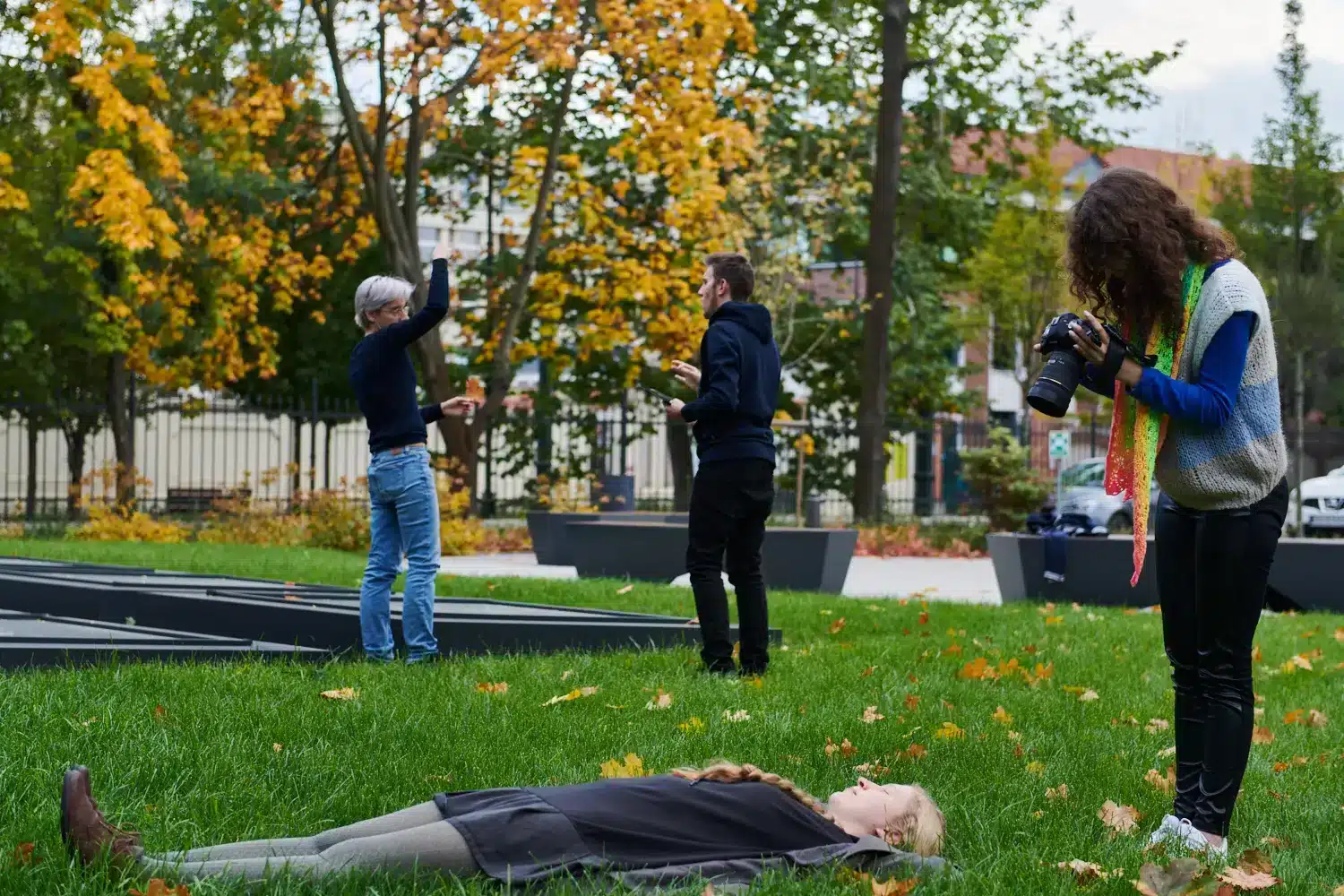
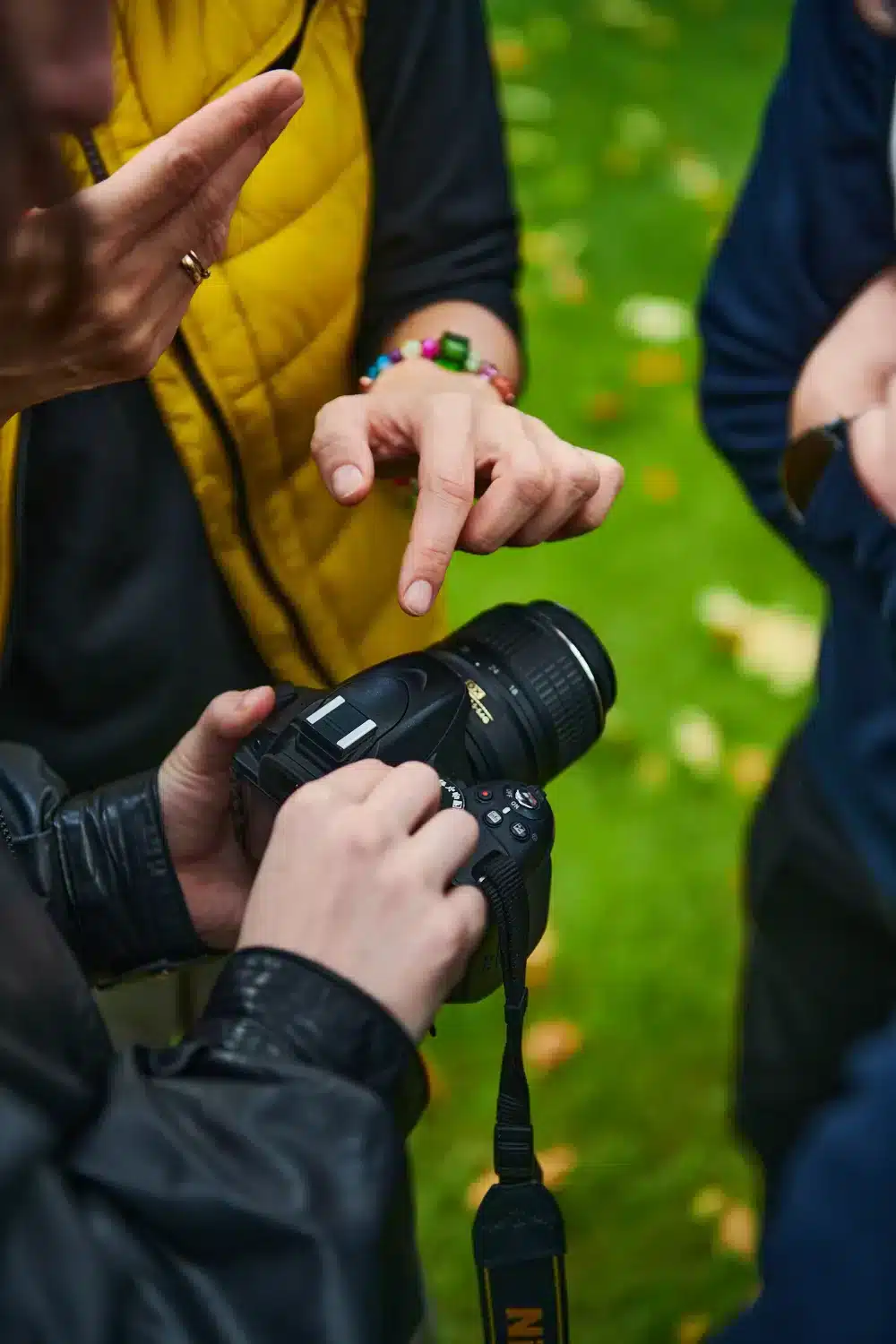
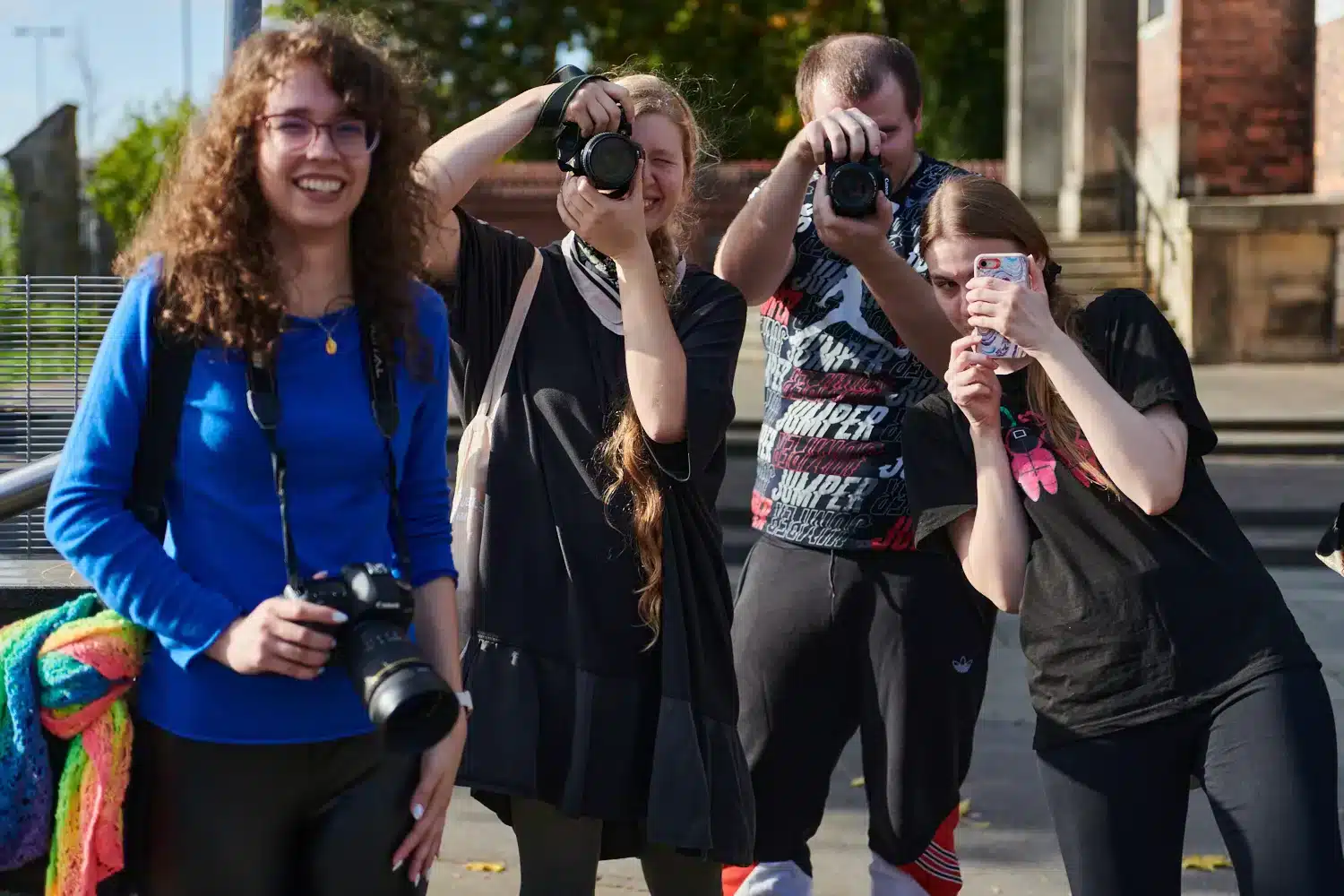
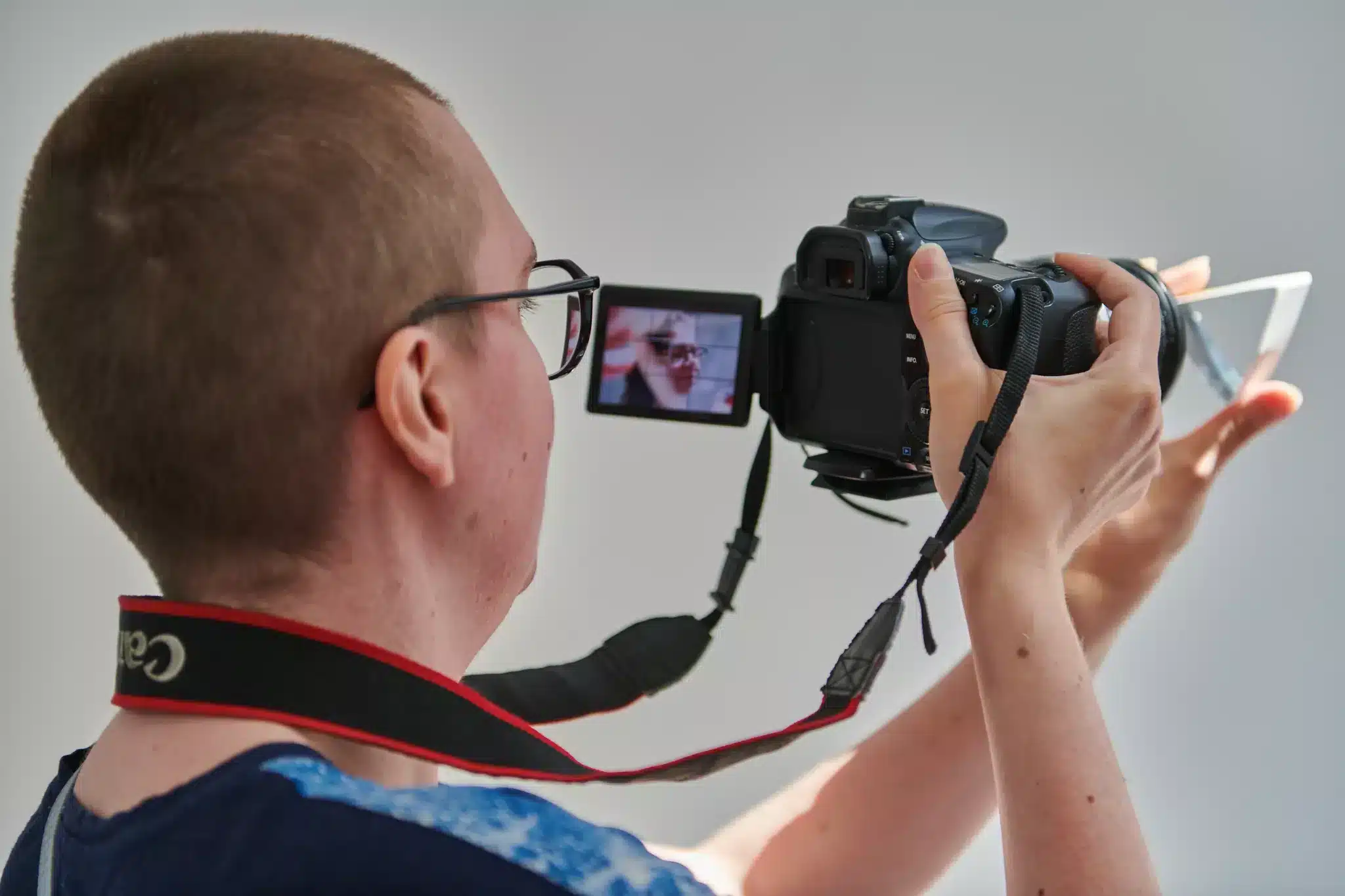
photo Mateusz Woźniak, MuFo
Can waste be the subject of photography? MUFO x Interzero collaboration
We avoid them because we don't like seeing them. At the same time, we produce a lot of them every day. Even if we hide them very deep, waste makes itself felt. Can waste be the subject of photography? How to talk about dealing with waste in a wise, responsible and interesting way?
Interzero joins forces with the Museum of Photography in Krakow to talk about the idea of a circular economy and the challenges associated with it. On this occasion, we will take photos to test the possibilities of photography as a visual way of talking about the problems of the modern world and raising awareness of environmental issues.
We will invite the recipients of our project to workshop and interpretive work, and we will present the results of all meetings in a publication that can also be used as a tool by educators.
The publication will be available at the beginning of 2024 on the following websites:
Home page - Museum of Photography in Krakow (mufo.krakow.pl)
Home page - Eco Without Edges (ekobezkantow.pl)
Meetings and workshops will be led by:
Krzysztof Story - Reporter of "Tygodnik Powszechny". He writes about social issues and human relations with nature. Together with Wojciech Jagielski, he runs the Jagielski Story podcast about international events. He puts the beauty of nature above all others. He climbs, travels and collects photos of inscriptions on walls. Author of the book "From Here. 150 doors at one address. He also publishes photos and texts on www.krzysztofstory.pl
Dr. Rafa ł Siderski - visual artist dealing mainly with photography. He completed his doctoral studies at the Institute of Creative Photography in Opava. It is part of the Albom.pl initiative dealing with digitization and work on photographic archives. In 2019, he published the book "Leave Stastan", which was awarded in the Photographic Publication of the Year 2019 competition. In September 2021 together with Małgorzata Lebda, he took part in a literary-visual-poetic adventure "Reading Water: Vistula", the materials from which were regularly published in Pismo Magazine. In August 2022 The material collected at that time was used to create the exhibition "Flow(s)", which is a visual and literary interpretation of the relationship with the river during that adventure. In his free time he goes "somewhere" or is "somewhere". He took part in numerous exhibitions in Poland (including Białystok, Rybnik, Poznań, Warsaw, Gliwice) and abroad (including Germany, the Czech Republic, Belarus, Italy, Lithuania and Japan). His works have received a number of awards and distinctions, and he received a scholarship from the Ministry of Culture and National Heritage (Culture online). From 2023, assistant at the Faculty of Photography and Creation of Visual Message at the Jan Długosz University in Częstochowa.
Monika Krysztofińska - cultural expert, project manager with experience in implementing alternative education. Creator of educational programs, workshops, lectures and exhibitions for children and adults. Initiator of projects focused on sustainable development in cultural institutions and private companies. A collector of information about technology, digital ecology, psychology, communication, and art. At Interzero, a member of the Ecological Education Team. It works at the intersection of sectors.
We invite you to follow our cooperation and read the details of the project:
Museum of Photography in Krakow - events (mufo.krakow.pl)
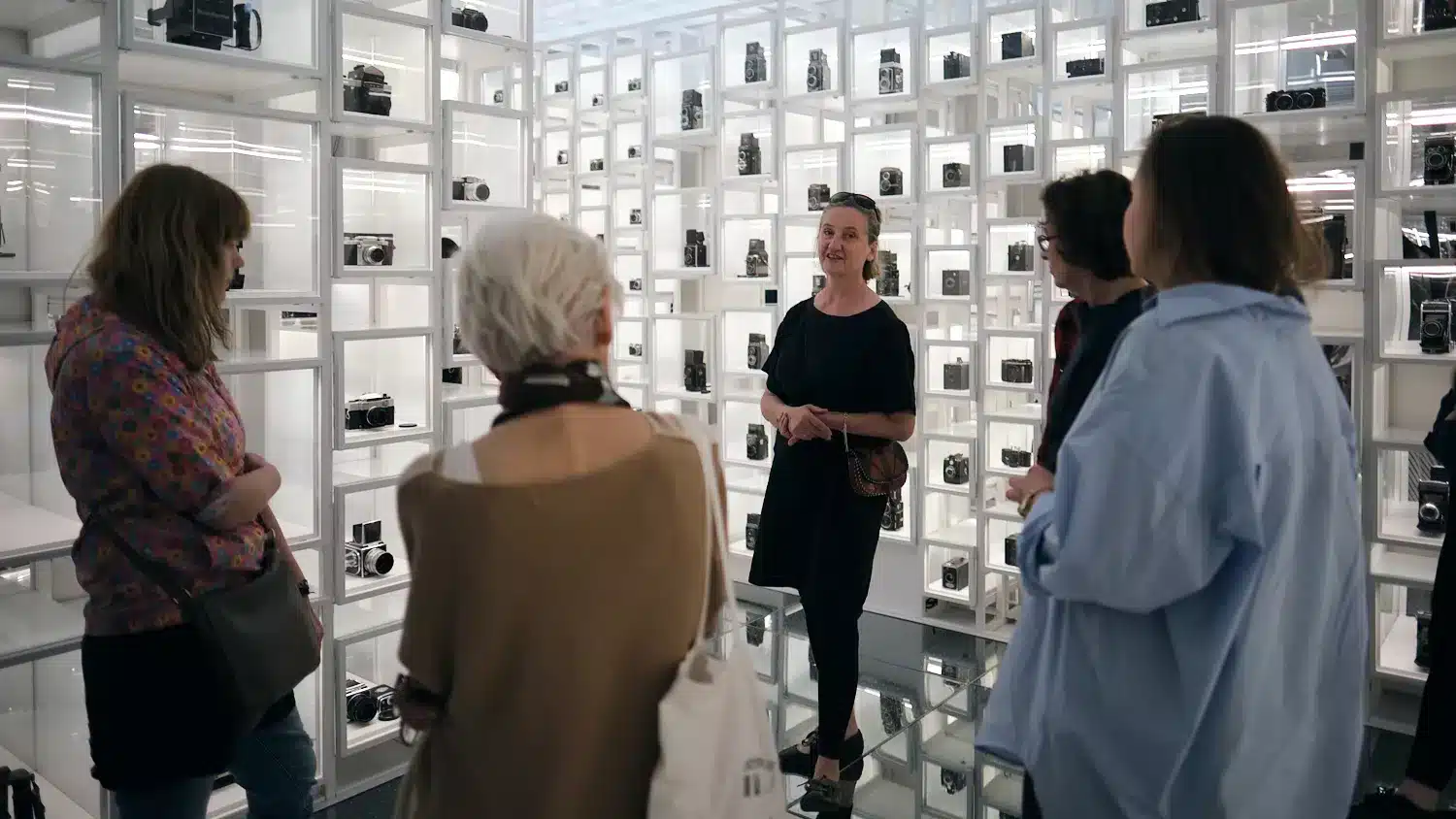
photo Mirosław Żak, MuFo
Interzero wins the German Sustainable Development Award 2024
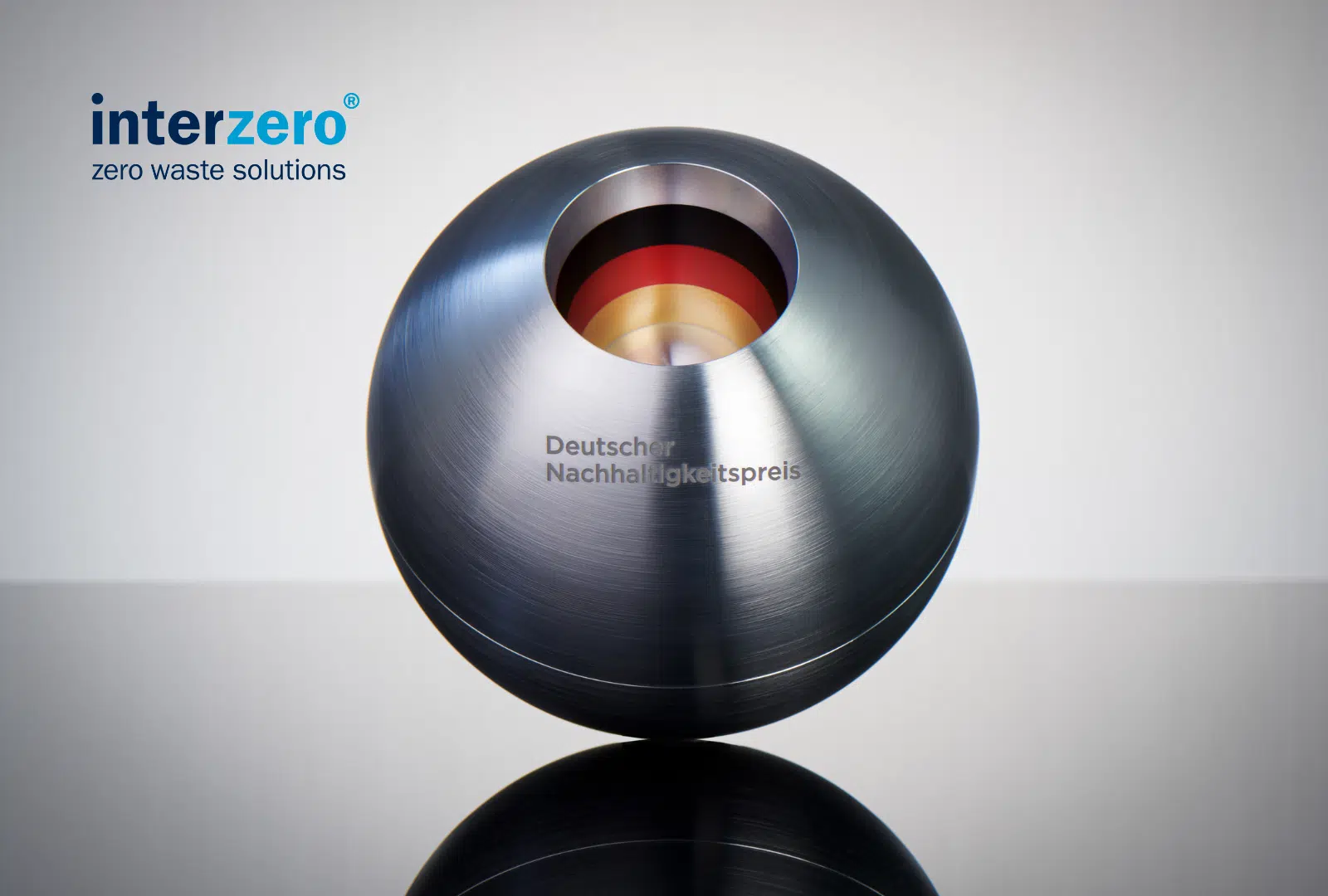
Interzero wins the German Sustainable Development Award 2024
A leader in the circular economy recognised for its commitment to building a world without waste: Interzero wins the German Sustainability Award 2024.
In recognition of its comprehensive commitment and pioneering "zero waste" solutions, Interzero will receive the German Sustainability Award 2024 in the "Waste Management and Recycling Industry" category. It honours outstanding achievements in sustainability in business, municipalities and research. The prize has been awarded annually since 2008. by the German Sustainability Award Foundation in cooperation with the German government, the German Council for Sustainable Development, leading municipal associations, business associations, civil society organisations and research institutions.
"We are very proud of this award," said Dr. Axel Schweitzer, CEO and owner of Interzero. "It encourages us to continue our circular transformation efforts with great determination and passion (...). Together with our customers and partners, we want to achieve a truly sustainable and circular economy to better address the excessive burden on our planet. Thank you very much to our customers, partners and our team."
The awards ceremony will take place on November 23, 2023. in Düsseldorf.
You can read more HERE .
Transforming waste into valuable raw materials - OMV and Interzero will build the largest chemical recycling sorting plant in Europe!
Transforming waste into valuable raw materials - OMV and Interzero will build the largest chemical recycling sorting plant in Europe!
OMV, an energy, fuels and raw materials, chemicals and materials company based in Vienna, announced an investment decision to build an innovative sorting plant developed by Interzero * to produce raw materials for chemical recycling.
In total, OMV will invest over EUR 170 million in the construction of this state-of-the-art facility in Walldürn in southern Germany. OMV will hold 89.9 percent of the joint venture and 10.1 percent of the shares will be held by Interzero.
Production at the new plant is expected to start in 2026. The new plant will create approximately 120 new jobs. The cornerstone laying ceremony is scheduled for November 20, 2023, when guests from the world of politics are expected.
The sorting plant will be the first sorting plant of its kind producing raw materials for OMV chemical recycling on a large industrial scale. ReOil® technology developed and patented by OMV is a chemical recycling innovation that converts plastic waste that cannot be mechanically recycled into pyrolysis oil - a valuable raw material. The input to the sorting plant generally consists of a mixture of plastics that have not been suitable for recycling until now, especially those separately collected from the yellow bag and yellow bin recycling system in Germany.
Interzero operates five light packaging sorting plants in Germany and sorts approximately one third of Germany's light packaging waste, amounting to over 800,000 tonnes per year. This means that the company currently has the largest sorting capacity in Europe and is a technology leader.
The collaboration between OMV and Interzero will ensure a supply of sustainable and high-quality raw materials for OMV's chemical recycling, helping to close the plastic loop. The innovative, state-of-the-art sorting plant created by Interzero will be capable of processing 260,000 tonnes of mixed plastic waste per year, providing raw material for the production of primary polyolefins. This innovative sorting process will enable the recovery of a polyolefin-rich fraction from the waste stream that currently goes to thermal recycling. When it comes to the waste hierarchy, the focus is on plastic waste that is not suitable for mechanical recycling. Thanks to this, chemical recycling will not compete with mechanical recycling.
*Acting as ALBA Recycling in the sorting plant
Please read the press release in English HERE
Interzero at the POLECO 2023 Fair
Interzero at the POLECO 2023 Fair
Read the summary of our presence at the POLECO 2023 Fair, which took place on October 17-19 at the MTP pavilions in Poznań.
During this year's Fair, Interzero presented Sielaff bottle dispensers, of which it is the exclusive distributor in Poland. Due to the establishment of a deposit system for single- and reusable beverage packaging in Poland, these devices may provide support in units obliged to collect packaging. We presented two models at POLECOe bottle dispenser from the SiCompact - 2020 XL and Eco M series. The devices allow for efficient and effective collection of returnable packaging, and thanks to their compact dimensions, they are perfect for facilities of various sizes. The devices enjoyed great interest, both from commercial entities (commercial chains, production plants) and local governments (municipalities), and even sports clubs.
If you want to know more about upcoming changes to the regulations, check out our page dedicated to the deposit system. The full range of Sielaff bottle dispensers is available at: our website: ekourzaczenia.interzero.pl/
Moreover, at our stand you could see the innovative Oklin GG-02 device. This small composter, which will fit in every office, was awarded the MTP Gold Medal. The award was received by the Director of the Commercial Department, Agata Ryś, and the Vice-President of the Management Board of Interzero, Paweł Lesiak. We also presented PEL BriteBin solar bins, which, thanks to the possibility of installing a Wi-Fi modem and customising the branding of the device, can diversify spaces in municipalities and cities.
Thank you for visiting our stand and we invite you to see the photo report from this event.
Join us in the packaging revolution. Create a deposit system with Interzero and PIOIRO
Join us in the packaging revolution. Create a deposit system with Interzero and PIOIRO
Interzero, together with the Polish Chamber of Recovery and Recycling of Packaging, invites all entrepreneurs covered by the provisions of the Act to jointly build a deposit system in Poland. We have extensive experience and know-how in the operation of deposit systems in EU countries (including the deposit system in Germany), the necessary knowledge and practice in the operation of the waste management system and ready-made IT solutions enabling efficient operation of the deposit system (including in terms of records and reporting), as well as the possibility of offering bottle dispensers with full service and support.
A broad point of view that takes into account the needs of the manufacturer, distributor and consumer allows us to ensure comprehensive implementation of statutory obligations and provide a solution that improves selective waste collection under the deposit system.
As part of the cooperation, Interzero will take over key tasks related to the construction and operation of the deposit system, and PIOIRO will act as an organisation associating packaging producers and waste management entities. Thanks to this, we will be able to focus on providing comprehensive solutions that will meet new regulations and market expectations.
Discover the offer for beverage producers, retail chains and representative entities. More details on the website HERE and HERE .
